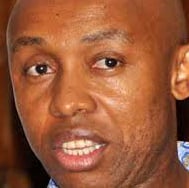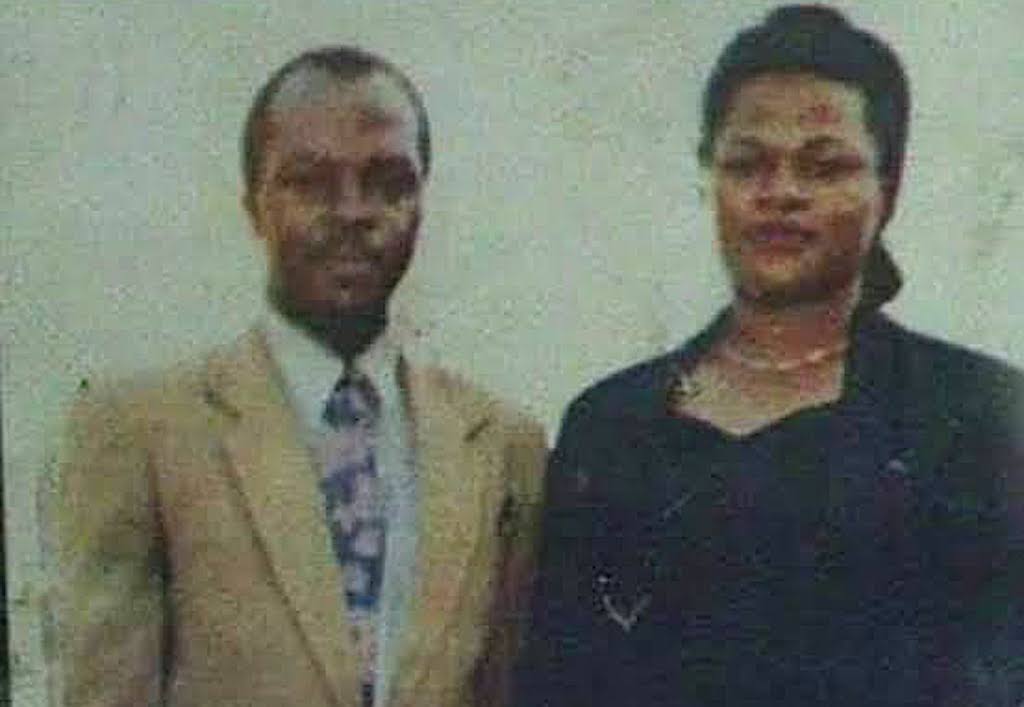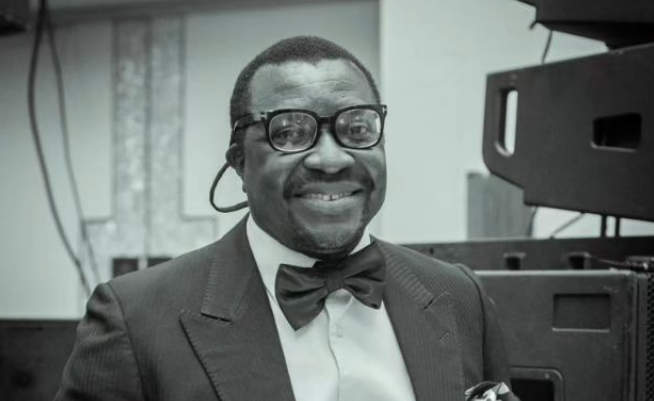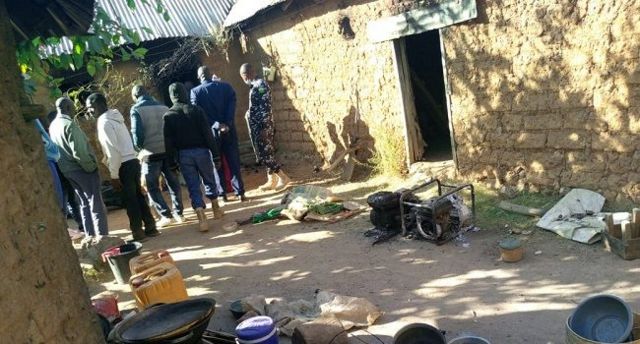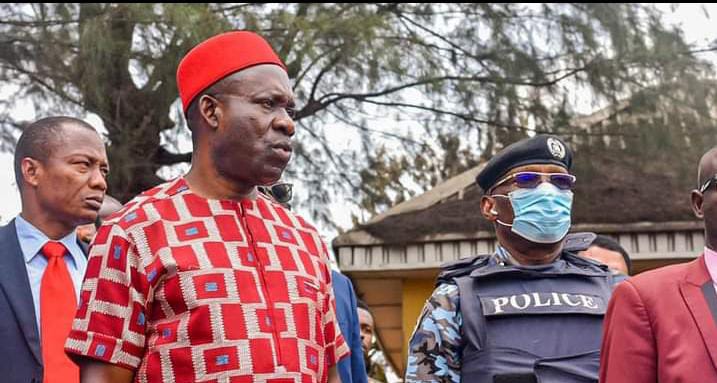In the last week of August 2002, Ibadan, the capital of Oyo state in south-west Nigeria, hosted the annual general conference of the Nigerian Bar Association (NBA). At the conference, the Association inaugurated Chief Wole Olanipekun, a Senior Advocate of Nigeria (SAN), as its 20th president.
One of the participants in that conference was Barnabas Igwe, then Chair of the Branch of the NBA in Onitsha, a popular commercial city in Anambra state. Mr Igwe attended the conference with his wife, Abigail. At the time, Onitsha and much of Anambra state were in thrall at the exploits of the “Bakassi Boys”, a murderous militia which, according to Human Rights Watch, “legitimised murder and terror”.
Following the end of military rule and the onset of elected civilian government, much of southeast Nigeria was overrun by crime and insecurity. The trading communities of Aba and Onitsha initially welcomed the intervention of what was touted as a crime-busting militia.
Quickly, in Anambra, the state government adopted a law to legalize the militia, provided it with money and then turned it into a violent machine “to intimidate and kill opponents”, whether real or imagined. Ironically, the governor of Anambra State at the time was Chinwoke Mbadinuju, himself a senior lawyer.
One of these perceived opponents of the governor was Barnabas Igwe. His crime was that as chairman of the leading branch of the NBA in the state, he had, shortly before travelling for the conference in Ibadan, criticized the resort of the state government to lawlessness in the form of the Bakassi Boys and also called for “the governor’s resignation due to the failure to pay government workers for several months”. For these crimes, known agents of the state government called to threaten Barnabas Igwe that he was a marked man.
The day after returning from the conference in Ibadan, on 1 September 2002, members of the militia dragged Barnabas and Abigail Igwe out of their car on Oraifite Street in Onitsha, “attacked them with machetes and shot them several times, then ran them over with their vehicle.” The assailants took nothing from their victims, all but ruling out the possibility that this was an armed robbery incident gone awry. Abigail reportedly died at the location from her injuries.
Advertisement
Passers-by rushed Barnabas to the hospital where doctors battled unsuccessfully for over six hours to save his life. Before he died, however, Barnabas did speak with his elder and only surviving brother about what transpired.
This kind of murder was a state crime but the real culprits in this case were themselves in charge of the machinery of the State which should have ensured accountability. Instead, they turned that machinery into one for granting themselves impunity. The case stood no chance.
Abigail and Barnabas Igwe were young parents. At the time of their tragic assassination, they had three young children. The youngest, Somadina, was barely six years old, born in 1996. His elder brother, Chijindu, and elder sister, Nnenna, were not yet through primary school.
Advertisement
This assassination was naturally the first major crisis of the tenure of Wole Olanipekun as president of the NBA but this was not the first high-profile assassination of a figure in the legal profession that the NBA had to deal with. The previous December, his predecessor confronted the assassination of the then minister of justice and attorney-general of the federation, Bola Ige, himself also a SAN.
Following the assassination of Abigail and Barnabas Igwe, the Association issued the obligatory and practised statement denouncing the killings and calling for the perpetrators to be brought to book. As president of the NBA, Chief Olanipekun went further to announce the establishment of a N25 million trust fund to support the education of the three children that Abigail and Barnabas Igwe left behind. So credulous were the family that when the then governor of neighbouring Imo state, Achike Udenwa, gave them the sum of four hundred thousand Naira, they transferred the money to the NBA in the belief that it would be administered as part of the announced trust fund for the children.
Although he had established his practice and then made good in Onitsha, Barnabas Igwe came from Atta, a community in Oru East Local Government Area of Imo State. He was one of only two brothers from their father. His elder brother, Vincent, was a trader in Onitsha whose values easily proved to be more cultured and more durable than those of the Nigerian Bar Association.
Vincent Igwe was a first son brought up with an ingrained sense of duty and service. When his father feared that the burdens of educating his two sons were too much for his limited finances, Vincent gave up on his own educational aspirations in favour of his younger brother, Barnabas, opting instead for the famous Igbo venture apprenticeship system of Igba Boy.
Advertisement
As the administration of Shehu Shagari was about to declare austerity in 1980, Vincent ventured into trading as his own principal in Onitsha. His first duty as his own boss was to put his younger brother, Barnabas, through university. By 1984, Barnabas had graduated from university and in 1985, Vincent saw him through the Nigerian Law School, taking pride in the enrolment of his brother as a lawyer.
In those days, long before the All Progressives Congress (APC) came to power and chose to retrench it, the National Youth Service Scheme (NYSC) was compulsory for university graduates. Barnabas did his NYSC in Jos, Plateau State and desired to start his professional life there but his elder brother invited him down to Onitsha where he eventually established his practice and prospered.
When Barnabas was assassinated, an inconsolable Vincent Igwe and his wife, Juliana, inherited the care of his two young nephews and niece without complaint, doubling the size of their children instantly from three to six. Besides raising these children, they also had to take responsibility for funding the investigation into and prosecution of the suspects in the killing of Barnabas and Abigail, fielding lots of death threats of their own in the process. The NBA had vanished from the scene without courtesy or notice and the state government outsourced the prosecution in order not to finance it.
Where was the N25 million NBA Trust Fund, the reader would ask? Well, the answer is it mostly existed in the imagination of the Association. In the end, the family even had to recover a debt the N400,000 from the Imo state government which it had handed over to the Association. More than a decade after the killing, an embarrassed Okey Wali, SAN, as the 26th president of the NBA at the beginning of 2013 refunded the money to the family.
This couple, Juliana and Vincent Igwe, the former a trader and the latter a teacher, raised Chijindu, Nnenna, and Somadina as their own. Providence rewarded their steadfastness and the memory of Barnabas and Abigail.
Advertisement
In 2023, Somadina was called to the Nigerian Bar. He is presently undertaking his NYSC somewhere in north-central Nigeria. A young man of extraordinary poise, he proposes to resume the family vocation of legal practice in the city where the assassination of his parents tragically punctuated it 21 years ago. His elder brother, Chijindu, already preceded him in the legal profession and is making a quiet name for himself around south-east Nigeria. Nnenna has also graduated with a first degree and is building her career and family too.
Orphaned in circumstances that would have destroyed most and abandoned by the professional association in the service of which of their parents were killed, the trajectory of these three children of Abigail and Barnabas Igwe was made possible by the selflessness of Juliana and Vincent Igwe. Justifiably, the children look upon the couple as Mum and Dad.
Advertisement
The story of what Juliana and Vincent have accomplished with these children with neither noise nor ceremony despite their modest circumstances is a reminder of the most positive aspects of being African. They represent the best example of what it means to make a real difference in the lives of others. For their unyielding examples of duty, service, and sacrifice, Juliana and Vincent Igwe are my Persons of the Year (POTY) for 2023.
A lawyer and a teacher, Odinkalu can be reached at [email protected]
Advertisement
Views expressed by contributors are strictly personal and not of TheCable.
